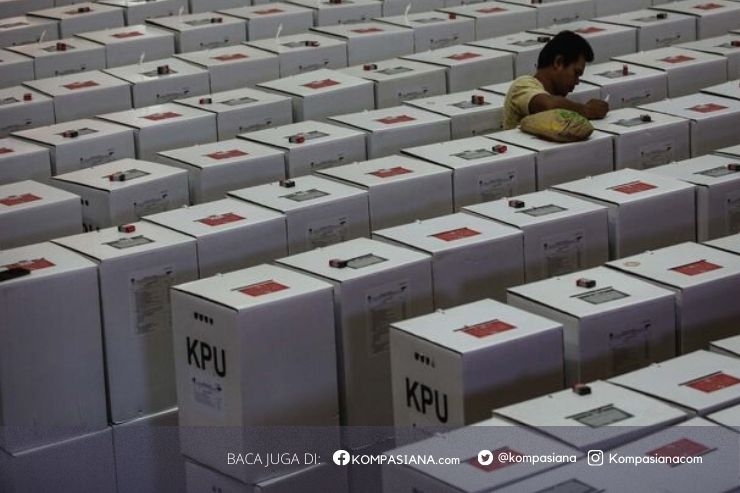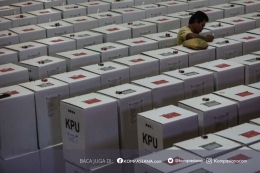Aceh Singkil, a regency in the Aceh province of Indonesia, faces several pressing issues that are central to the lives of its residents and the region's overall development. One of the most significant challenges is the protection of religious freedoms, particularly for minority groups. The region has experienced tensions and conflicts related to religious practices, with instances of church attacks, arson, and demolition, leading to disruptions in the religious life of the community. These events have raised concerns about the role of civil society and ecumenical institutions in advocating for religious freedom and the need for a clear direction from both central and regional governments to foster reconciliation and uphold the right to worship.
Another critical issue is environmental conservation, especially concerning the Leuser Ecosystem, one of the most biodiverse regions in the world. Deforestation, both legal and illegal, poses a significant threat to this ecosystem. The expansion of palm oil plantations and logging concessions has led to the destruction of vast areas of lowland rainforests, which are crucial for carbon sequestration and as habitats for endangered species. This deforestation trend outside government-issued concessions is particularly alarming and underscores the need for more robust conservation efforts and sustainable development practices.
The relationship between different religious communities, particularly between Islam and Christianity, is also a matter of concern. Building a harmonious relationship between these communities is essential for peace and stability in the region. Efforts to resolve religious conflicts and promote dialogue are ongoing, but the path to lasting peace requires continuous commitment from all stakeholders.
Furthermore, the region grapples with the need for improved public services. The adoption of e-government initiatives has been a step forward, but there is still a long way to go in ensuring that these services effectively meet the needs of the population and contribute to the region's development.
These issues are complex and interrelated, affecting not only the socio-political and cultural landscape of Aceh Singkil but also its economic prospects and environmental sustainability. Addressing them requires a multifaceted approach that involves the participation of the government, private sector, civil society, and the international community. As Aceh Singkil moves forward, the resolution of these challenges will be crucial in shaping a future that is peaceful, inclusive, and prosperous for all its residents.
The campaign of AKBP Syuhaimi for the Bupati position in Aceh Singkil has been generating a positive buzz among the electorate. His narrative of returning to his roots after a successful career in Jakarta to contribute to the development of his hometown has struck a chord with many voters. The initiatives he has spearheaded, such as the establishment of a palm oil factory and the HMSS Sejahtera Bersama Foundation, are seen as tangible evidence of his commitment to economic growth and social welfare in the region. These projects have not only provided economic opportunities but also aim to reinvest profits back into the community, which aligns with the voters' desire for sustainable development.
Syuhaimi's emphasis on synergy between the government, private sector, and the community as the key to development has been well-received. His approach suggests a collaborative effort that could lead to more inclusive and comprehensive growth for Aceh Singkil. The focus on utilizing local resources and cultural heritage to create new opportunities has also been praised, as it promises to harness the unique potential of the region.
Moreover, Syuhaimi's background as a law enforcement officer and businessman is perceived as a combination that could bring discipline, order, and economic acumen to the office of Bupati. His vision for Aceh Singkil, which includes modern management practices and an understanding of local dynamics, is seen as a formula that could drive significant progress in the region.
The positive reception of Syuhaimi's campaign is indicative of the electorate's appetite for a leader who can bring about real change. His message of hope and progress appears to be resonating with a broad spectrum of the population, from those in rural areas who will directly benefit from agricultural initiatives to urban residents looking for improved governance and economic policies.
As the election nears, the enthusiasm for Syuhaimi's candidacy reflects a growing confidence in his ability to lead Aceh Singkil towards a more prosperous future. His campaign has successfully communicated a vision that is both progressive and grounded in the realities of the region, promising a leadership that is committed to the welfare and advancement of all segments of society.
Aceh Singkil, a regency in the Aceh province of Indonesia, is grappling with a range of issues that are critical to the well-being of its residents and the area's development. One of the most pressing concerns is the frequent flooding caused by heavy rainfall, which disrupts lives and livelihoods. The environmental impact of such natural disasters is significant, leading to loss of property, damage to infrastructure, and long-term economic challenges for the affected communities.
Another major issue is the Rohingya refugee crisis, which has put a strain on local resources and heightened social tensions. Aceh Singkil has found itself at the center of this humanitarian dilemma, with political elements potentially exploiting the situation for gain, leading to anti-refugee sentiments and conflicts. This situation underscores the need for a balanced approach to refugee assistance that considers the rights and needs of all parties involved.
The region also faces environmental concerns, particularly related to the Leuser Ecosystem. Deforestation for palm oil plantations and logging poses a threat to biodiversity and contributes to climate change. The challenge lies in balancing economic development with the preservation of natural resources.
Furthermore, Aceh Singkil is working to improve public services, including healthcare, education, and infrastructure. The adoption of e-government initiatives is a step in the right direction, but there is still significant work to be done to ensure these services are accessible and effective for all residents.
The relationship between different religious communities, especially between Muslims and Christians, is another sensitive issue. Past conflicts have necessitated ongoing efforts to foster dialogue and reconciliation to maintain peace and harmony.
Economic development is also a focal point, with the need to create jobs, support local industries, and attract investment. The region's leadership is tasked with creating an environment conducive to business while also ensuring that growth is inclusive and benefits the broader population.
In summary, Aceh Singkil's main issues revolve around natural disaster management, the Rohingya refugee crisis, environmental conservation, public service improvement, inter-religious harmony, and economic development. Addressing these challenges requires a concerted effort from the government, private sector, civil society, and international partners to ensure a sustainable and prosperous future for the regency. The upcoming elections present an opportunity for new leadership to tackle these issues head-on and chart a course for Aceh Singkil that prioritizes the well-being of its people and the health of its environment. The voters of Aceh Singkil will play a crucial role in deciding the direction of their region, as they weigh the various candidates' approaches to these pressing concerns. The outcome of the election will undoubtedly have a lasting impact on the regency's trajectory in the years to come.
Baca konten-konten menarik Kompasiana langsung dari smartphone kamu. Follow channel WhatsApp Kompasiana sekarang di sini: https://whatsapp.com/channel/0029VaYjYaL4Spk7WflFYJ2H







